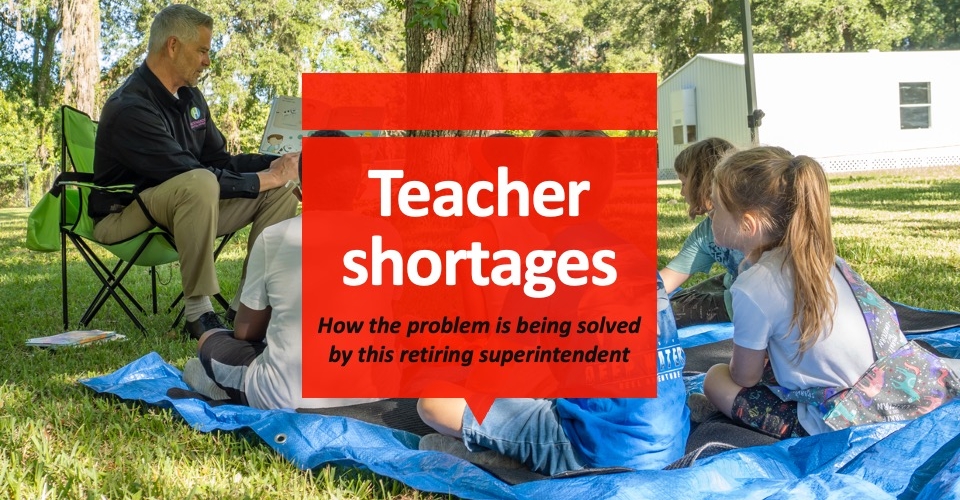If you haven’t heard already, “the bloodletting” is soon approaching. It’s a term research professor and Director of Georgetown University’s Edunomics Lab Marguerite Roza has frequently used to describe the Sept. 30 expiration of pandemic relief funds. But did the ESSER program make much of a difference academically?
Pandemic relief spending
Two new research studies released this week give us an idea of the effectiveness of ESSER spending by K12 schools. Each study contends that pandemic relief funds kept schools afloat and made some academic gains.
The first study, which was a collaboration between Harvard’s Center for Education Policy Research and Stanford’s Opportunity Project, reveals that every $1,000 of federal relief spent per student during the 2022-23 school year resulted in a 3% increase in math scores compared to a typical school year, or about six school days of learning.
As far as reading scores go, improvements weren’t as significant. The data suggests the same amount of spending only bought the gains equivalent to an extra three school days of learning.
“It led to significant improvements in children’s academic performance… It wasn’t enough money, or enough recovery, to get students all the way back to where they were in 2019, but it did make a significant difference,” Sean Reardon, professor of poverty and inequality in education at Stanford and project leader of the research, told NPR.
The second study, which comes from the Center for Analysis of Longitudinal Data in Education Research, paints a similar picture. For every $1,000 increase in ESSER per pupil funds there were “statistically significant increases” in math scores but negligible impact in ELA.
“To recover losses remaining after 2023, we estimate schools would need to spend $9,000 to $13,000 per pupil,” the authors suggest.
Trump vs. vaccines
In other news, former President Donald Trump is vowing to cut federal education investments. Last week, he told his followers in Wisconsin that he “will not give one penny to any school that has a vaccine mandate,” MSNBC reports. He echoed this sentiment again this past weekend.
During a rally at Temple University on Saturday, he vowed to move the Department of Education “to the states,” The Washington Examiner reports.
“We’ll be able to cut [spending on] education in half and get much better education in some of the states,” Trump said. “We’ll have the best education anywhere in the world.”
He also mentioned that the United States spends more “per pupil” than any other country, yet he notes that the U.S. ranks poorly in education. So, “What the hell do you have to lose?” he asked.
Trump: I will cut education in half pic.twitter.com/YtAD0QMH4F
— Biden-Harris HQ (@BidenHQ) June 22, 2024
New AI tools from Google
The last tidbit of information I’ll throw your way comes from Google. This week, they’ve announced new updates to their AI tools for students. Gemini, for instance, is now available for teens’ school accounts to help them learn “responsibly and confidently in an AI-first future,” the announcement reads.
Gemini will guide students with in-the-moment assistance, practice materials and real-time feedback. Furthermore, Google is adding extra data protection to Gemini, promising not to use data from chats to improve AI models,” the company adds.
“In the coming months, we’re making Gemini available to teen students that meet our minimum age requirements while using their Google Workspace for Education accounts in English in over 100 countries around the world, free of charge for all education institutions.”
More from DA: Fighting false information? 8 ways to better spread the truth
Additionally, Google announced several resources and trainings for students, parents and educators to learn more about generative AI and how to use it responsibly and effectively:
New from DA
As always, here’s what’s new from District Administration this week:
- “Talking Out of School” podcast: Paper CEO Phil Cutler shares insights from Leadership Voices, a series of interviews with superintendents covering artificial intelligence, personalized learning, staffing challenges and the other issues that are top of mind.
- EdTech Top 40: Read our coverage of LearnPlatform by Instructure’s 2024 list of the top 40 edtech tools. This year’s list reflects the importance of uniqueness and interoperability in education.
- Teaching apprenticeships: We know the importance of building a strong teacher pipeline. In this article, I share three innovative teaching apprenticeships that blend K12 with higher education to prepare the next generation of students.









